 Divide the given number by any prime number greater than 1, that will divide it without a remainder, and the quotient, if composite, in the same manner; and thus continue until the quotient is prime. The divisors and the last quotient will be the prime... Divide the given number by any prime number greater than 1, that will divide it without a remainder, and the quotient, if composite, in the same manner; and thus continue until the quotient is prime. The divisors and the last quotient will be the prime...  An Elementary Arithmetic - Page 70by Daniel Barnard Hagar - 1871 - 208 pagesFull view An Elementary Arithmetic - Page 70by Daniel Barnard Hagar - 1871 - 208 pagesFull view - About this book
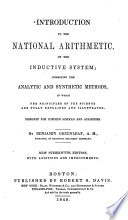 | Benjamin Greenleaf - Arithmetic - 1849 - 336 pages
...last quotient constitute all the prime factors of 24. RULE. — Divide the given number by the least prime number, greater than 1, that will divide it without a remainder, and then this quotient, if a composite number, in the same manner, and thus continue the division until... | |
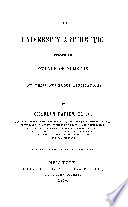 | Charles Davies - Arithmetic - 1850 - 412 pages
...the least number which they will separately divide without a remainder. A factor of a number, is any number greater than 1 that will divide it without a remainder ; and a prime factor is any prime number that will so divide it. Now, it is plain, that a dividend will contain... | |
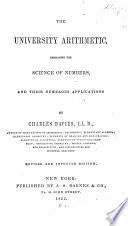 | Charles Davies - Arithmetic - 1852 - 438 pages
...the least number which they will separately divide with out a remainder. A factor of a number, is any number greater than 1 that will divide it without a remainder ; and a prime factor is any prime number that will so divide it. Now, it is plain, that a dividend will contain... | |
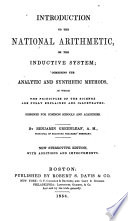 | Benjamin Greenleaf - 1854 - 342 pages
...last quotient constitute all the prime fac\ tors of 24. RULE. — Divide the given number by the least prime number, greater than 1, that will divide it without a remainder, and then this quotient, if a composite number, in the same manner, and thus continue the division until... | |
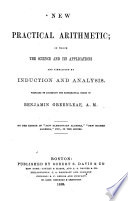 | Henry Bartlett Maglathlin - Arithmetic - 1869 - 332 pages
...prime. Therefore, the prime factors of 84 are 2, 2, 3, and 7, and may be written 2", 3, and 7. '^ RULE. Divide the given number by any prime number greater than 1, that is an exact divisor, and the quotient, if composite, in the same manner ; and thus continue until the... | |
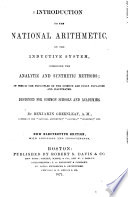 | Benjamin Greenleaf - Arithmetic - 1871 - 350 pages
...constitute all the prime factors of 24, which, multiplied together, equal 2 X 2 X 2 X 3 = 24. RULE. — Divide the given number by any prime number, greater than 1, that will divide it, and the quotient, if a composite number, in the same manner; and continue dividing until a prime number... | |
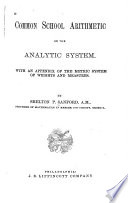 | Shelton Palmer Sanford - Arithmetic - 1872 - 404 pages
...of 462 are 2, 3, 7 and 11. Hence, we have the following RULE. Divide the given number by the least prime number greater than 1 that will divide it without a remainder, and continur to divide each quotient in the game way until tlie quotient become* a prime number. The last... | |
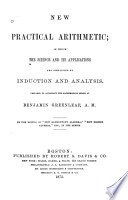 | Henry Bartlett Maglathlin - Arithmetic - 1873 - 362 pages
...prime. Therefore, the prime factors of 84 are 2, 2, 8, and 7, and may be written 22, 3, and 7. RULE. Divide the given number by any prime number greater than 1, that is an exact divisor, and the quotient, if composite, in the same manner ; and thus continue until the... | |
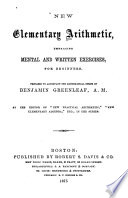 | Henry Bartlett Maglathlin - Arithmetic - 1875 - 216 pages
...two factors, 3 and 7, both prime. Therefore, the prime factors required are 2, 2, 3, and 7. Rule. — Divide the given number by any prime number greater...the quotient, if composite, in the same manner; and thus continue until the quotient is prime. The divisors and the last quotient will be the prime factors... | |
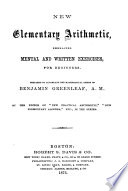 | Henry Bartlett Maglathlin - Arithmetic - 1876 - 230 pages
...two factors, 3 and 7, both prime. Therefore, the prime factors required are 2, 2, 3, and 7. Rule. — Divide the given number by any prime number Greater...the quotient, if composite, in the same manner; and thus continue until the quotient is prime. The divisors and the last quotient will be the prime factors... | |
| |